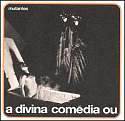|
So I just realised that theres problems with using an Mbox and Vista (64 bit). It worked at first and now I can't select the ASIO digidesign driver in Reason or Ableton and even Pro Tools gives me DAE errors when im trying to open it. This is loving annoying. Is there any ways around it? Will Windows 7 work? Or will I have to revert back to XP (really dont want to do that). Kind of lovely that they haven't even released an update for vista when its been out for so long.
|
|
|
|

|
| # ? May 13, 2024 22:33 |
|
As far as I can tell from some light google-ing, ProTools doesn't play well with 64 bit. http://duc.digidesign.com/showthread.php?t=235256 This thread has some more information.
|
|
|
|
I have a quick question. I have a Yamaha S90es, two monitors, a mac, and an Apogee Duet audio interface (Or will, when they get here). The keyboard L Rs output go into the Duet audio inputs, and the Duet outputs go to the monitors. The duet will be the new addition, traditionally I was going directly to the monitors from the keyboard outputs. My question is with this new setup, am I always going to need the Duet and mac powered on in order to play my keyboard? Will it act like a passthrough if its turned off, or do I have to disconnect it and go directly into the monitors everytime I want to play without the laptop present?
|
|
|
|
FateFree posted:I have a quick question. I have a Yamaha S90es, two monitors, a mac, and an Apogee Duet audio interface (Or will, when they get here). The keyboard L Rs output go into the Duet audio inputs, and the Duet outputs go to the monitors.
|
|
|
|
Rkelly posted:the duet will work as a standalone mixer i believe so you should get sound with or without the mac going.
|
|
|
|
Has anyone tried to get an education version of Cubase 5 (or anything else for that matter)? I'm finish college soon, and I kind of want to jump on this. Anyone know what they check? I've heard from some sources they just check a college ID and notification of enrollment. http://pro-audio.musiciansfriend.com/product/Steinberg-CUBASE-STUDIO-5-EDUCATIONAL?sku=703581#new
|
|
|
|
wixard posted:It has no external power adapter AFAIK so I highly doubt it functions standalone. Then its one of a few. Most interfaces I have used worked without the comp. I know almost all presonus do. By work i just mean pass audio thru using internal dsp. I will do some googling. I was thinking of the ensemble . The duet does not do standalone. The ensemble does though. I wish I had one lol. Here is a gear slutz thread with everything you ever wanted to know about the duet. http://www.gearslutz.com/board/music-computers/143423-apogee-duet-professional-two-channel-firewire-audio-interface-mac.html Rkelly fucked around with this message at 02:58 on Jun 26, 2009 |
|
|
|
So in the event that it can't act as a passthrough and I just want to gently caress around with the keyboard if I don't have the laptop nearby, what are the options? I could manually swap the wires to go right to the monitors but that seems tedious. What about a sort of A/B switch to determine where the keyboard outputs go? Will that degrade quality?
|
|
|
|
Sorry if this is out of place, but this is the only place I could think of to post this. Someone want to give me a hand identifying the old rear end gear?
|
|
|
|
No. 9 posted:Has anyone tried to get an education version of Cubase 5 (or anything else for that matter)? I'm finish college soon, and I kind of want to jump on this. Anyone know what they check? I've heard from some sources they just check a college ID and notification of enrollment. I got a student friend of mine to get mine for me, I'll ask him what he had to show. This is UK mind.
|
|
|
|
SouvlakiPlaystation posted:Sorry if this is out of place, but this is the only place I could think of to post this. Someone want to give me a hand identifying the old rear end gear?
|
|
|
|
SouvlakiPlaystation posted:Sorry if this is out of place, but this is the only place I could think of to post this. Someone want to give me a hand identifying the old rear end gear? That thing sitting on the table in the bottom right is probably a Nagra of some kind.
|
|
|
|
I am looking for a decent USB microphone to do some home recording with. Does anyone have any experience with the following? http://pro-audio.musiciansfriend.com/product/Blue-Snowball-USB-Microphone?sku=279015#new http://pro-audio.musiciansfriend.com/product/Nady-USB1C-USB-Condenser-Microphone?sku=277180#new http://pro-audio.musiciansfriend.com/product/MXL-990USB-USB-Powered-Condenser-Microphone?sku=271009#new http://pro-audio.musiciansfriend.com/product/AudioTechnica-AT2020USB-USB-Condenser-Microphone?sku=272999#new Looking for something that can record vocals, acoustic guitar, electric guitar, as well as bass. Thanks for any input.
|
|
|
|
I like my AT2020, maybe its best if you find a pack or something for a dynamic and a condensor if you want to use it for that range.
|
|
|
|
noob gear question: I've been loving around with Reason, and want to get a Midi controller. I found an Axiom 49 for 170€ - googling around, people say it's good for the price, and the Reason presets included would make it easier as well (not too much editing) Question 1: Is this a good controller choice ? How much does gear like this loose in price in time ? To make notes without a keyboard, I've been using something called Reason MidiBoard, which uses some driver thingy "LoopBe1 - Internal Midi Port", and I play with my computer keyboard. However, I get a small delay between pressing my key, and the actual sound - so my recording is a tiny bit hosed, and I need to manually edit poo poo, which is loving annoying. Question 2: Would I still have this problem with the Axiom ? If so, how do I fix it ? And how can I fix it now ? (My computer is a recent HP laptop with double centrino, 2ghz, and 3go RAM I think)
|
|
|
|
An0 posted:noob gear question: You have latency issues, aren't they great? It's not the MIDI Controller's fault, it's your soundcard. I'd suggest using a USB audio interface with your laptop. I own a Fast Track Pro and I've had a MobilePre in the past, which all kept latency down very very low. If you can't shell out cash for it, make sure to look at your current audio settings in Reason and try to get latency down as low as you can, use ASIO drivers if you have them. Here they are for sale: http://pro-audio.musiciansfriend.com/computers-peripherals/audio-interfaces Edit: Also, to your other question. I use an Axiom 25 and I love it. Mind you, I don't use keyboards much in my recording, just to add things in later; but its been the best controller I've owned. I don't know what the market is right now, but I got mine a few months after the Axiom came out and I don't regret the purchase. No. 9 fucked around with this message at 18:29 on Jun 30, 2009 |
|
|
|
I have some questions about recording with Reel-to-Reel tape recorders. Up until now I've been doing the atypical modern budget recording, which is to say that i've been running an SM57 microphone and an electric guitar in to my computer using an M-Audio Firewire box as my audio interface and Ableton as my DAW. I've been thinking about implementing Reel-to-Reel on some tracks to get a more organic sound and to gently caress with "lo-fi" stuff in general, but I'm not really sure of how the basics of this should even work. Would I need anything else aside from the recorder itself? A pre amp? A mixer? Or could I feasibly just plug my mic in, directly record on to the tape (using headphones to monitor) then convert the tapes over to WAV files on my computer? Which of course brings up the question of how you go about getting the audio on the reels over to your computer in the first place. Any input would be greatly appreciated.
|
|
|
|
It will most likely have unbalanced RCA inputs prepared to take +4dBu signals, so no you won't be plugging a mic directly into it you'll need a preamp. You will want to be sure all of the mechanical components are working properly so that when you play things back they play back at the same speed every time if you want to successfully record along to anything or layer it with other tracks it needs to be in tune with. Also, if it's in poor mechanical shape it will wear your heads and tape much faster. You'll probably want to have the tape heads aligned and demagnetized at least and most likely re-lapped or replaced, since I assume from your posts you just stumbled into a tape machine and have no idea of its origin. I don't know exactly what machine is in your pictures, but I'm guessing it's a 1/4" 2-track since that would be most common. Have you identified the machine yet? It could be that it has some kind of mic input and built-in preamp that was made for home use or something, but likely it does not. You would dump it into your computer the same way you record anything else: through your interface. In short if you are serious about playing with it, I would find someone to service/evaluate it to start with. People who can do this are not always easy to find and it could very well be expensive. You can certainly play around with it for kicks, but you can't expect the frequency response or distortion to be predictable or to get a classic tape sound unless you know it's in good working order. Here's a decent introduction to what you're dealing with as far as basic tape machine maintenance. YMMV of course, and I have very little first-hand experience with tape. Maybe it will do fine with the reel that's on it for what you want to do with no maintenance at all, but if you want any control over it there's a lot of variables and moving parts to consider and not a lot of good resources to learn to do it yourself.
|
|
|
|
I don't actually own any of the stuff in the picture that I posted, though I am thinking of buying that reel-to-reel or one similar. Would I be able to use my M-Audio box as a preamp? What about a little Behringer mixer? Thanks for all the info.
|
|
|
|
For your purposes a mixer would probably be a better solution. Unless your interface has a separate DC power supply (isn't bus powered) and is designed to run standalone, you'd have to be running your computer to use it and any latency involved would still be applicable. A mixer would give you more flexibility with level control, you could record to tape without your computer, you would probably have more gain to do things like overdrive the tape machine for good old tape saturation/distortion and it would maybe give you the RCA inputs and outputs you'll need with no adapters necessary. If you're trying to overdrive the tape machine though, you'll probably still want adapters because most of the RCA tape outputs and inputs on budget mixers are made for -10dBV signals for CD players, cassette decks, etc and have no input or output gain, while most analog tape machines are +4dBu ins and outs.
|
|
|
|
No. 9 posted:I like my AT2020, maybe its best if you find a pack or something for a dynamic and a condensor if you want to use it for that range. In that case would it be best to get a basic USB preamp so I can mix and match mics based on the application? Looking at something like http://pro-audio.musiciansfriend.com/product/MAudio-Fast-Track-USB-Computer-Recording-Interface?sku=703606, http://pro-audio.musiciansfriend.com/product/Lexicon-Alpha-USB-Audio-Interface?sku=245507#new, or http://pro-audio.musiciansfriend.com/product/ART-USBPhonoPlus-v2-Computer-Interface?sku=180039. Also, what microphones would you recommend for recording amps(bass and guitar)? for vocals? I am talking entry level gear here, I was looking at maybe an MXL 990 http://pro-audio.musiciansfriend.com/product/MXL-MXL-990-Condenser-Microphone-with-Shockmount?sku=273156 or AT2020 http://pro-audio.musiciansfriend.com/product/AudioTechnica-AT2020-Large-Diaphragm-Cardioid-Condenser-Microphone?sku=270620 to start off with? Any opinions? Thanks!
|
|
|
|
A USB preamp would probably be best. It'll give you flexibility to try new mics and less latency (assuming you don't already have a decent soundcard). For what its worth, I chose the AT2020 over the MXL based upon hearing more favorable reviews for the AT. It was close though, I think I actually bought the MXL and returned it because the AT was on sale or something. You probably won't go wrong on either of them. If you're going to run a condensor mic, you need phantom power on the preamp. Doesn't look like any of those ones have phantom power built in.
|
|
|
|
I didn't wanna start a new thread just for this question so I thought I'd put it here. Could anyone who knows a lot about microphones explain, I guess the "physics" behind how they work? Specifically, why a mic seems to capture so much more of the sound of a room than your ears do while standing in the same position. I was wondering about this because I was trying to record acoustic guitar tracks at a friend's house, and naturally the room we were in needed some treatment cause he had never done any recording before. I nailed up some insulation in certain places to break up flutter echoes and things like that, until it sounded like a decently treated room. When I just stood there listening while he played, it sounded great (it's a really nice acoustic guitar), but on the recording the sound of the room was about 10x more pronounced, even though the mic was positioned about exactly where my head was while listening. We ended up having to make a totally absorbant, dead area, but even then you could still hear reflections from the room on the recording that you would never have heard just standing in that dead corner listening. I feel like if I could understand this better it would remove a lot of the guesswork when placing mics\applying treatment in a less than great sounding room. EDIT: Because it might be relevant, we were using an NT1 which is a large diaphragm cardioid condenser. I've had the same problem in other situations though even when using a unidirectional mic pointed right at the guitar. Relayer fucked around with this message at 16:33 on Jul 2, 2009 |
|
|
|
A lot of it has to do with the context in which you hear and perceive a sound in real time with both of your ears, vs hearing a recording coming from a pair of speakers. You've lived with your ears all of your life, and for that entire time your brain has been interpreting what you hear for you. This interaction between your ears and your brain has become so fluid that your brain has developed an amazing way of interpreting what you hear for you. When you record something with a single microphone, and then play it back through a pair of speakers, you're changing the context in which the sound exists, and your brain notices this. When you recorded, your ears were ~6ft off the ground, and 6 inches apart from each other. You heard the direct sound of the instrument, and you heard the reflections from the nearby surfaces as they hit your ear. However the microphone may not have been 6ft off the ground, in the case of an acoustic guitar it may have been 3-4 feet off the ground, and it was probably much closer to the guitar than you were when you were listening to the instrument. The ratio of reflections to direct sound was probably much different. There was also only one mic, and rather than being pointed outward like your ears, it was probably pointed directly at the guitar. You're then taking what that mic heard, and playing that sound back through two speakers, which are probably 4-5 feet off the ground, and 4-5 feet apart. The guitarist was probably 3-4 feet off the ground, and was a single source of sound. Also, if you're playing back in the same environment that you recorded in, you're DOUBLING the amount of ambience that you heard when you recorded. Think about it, you're listening to the initial reflections that happened when you recorded, but you're also hearing additional reflections from the space that you are listening to playback in. You're also hearing reflections from the recorded reflections. AND, if you recorded in mono and are playing back in stereo, then you're doubling the reflections AGAIN because it's now two sources of sound as opposed to one. If you want to conduct an experiment and have a ton of free time, try recording with two microphones, at ear height, 6 inches apart, angled at 45 degrees, the center axis of these mics pointing at the guitar. Stand right behind the mic as you record. Then, listen to playback with headphones while standing in the exact same spot as you did when recording.
|
|
|
|
RivensBitch posted:However the microphone may not have been 6ft off the ground, in the case of an acoustic guitar it may have been 3-4 feet off the ground, and it was probably much closer to the guitar than you were when you were listening to the instrument. The ratio of reflections to direct sound was probably much different. Well, that's part of what was so counter-intuitive about it for me. Your ears are pointed off at an angle, on the side of your head. The mic is pointed straight at the guitar, in our case about 5 inches away from the 12th fret, yet it seems to capture less direct sound than your ears. I'd expect the ratio of direct to reflected sound to be different sure, but the other way around. This did really clear up a lot for me though, thanks a bunch. I figured it was gonna boil down to something about how your ears\brain are just fundamentally different than a microphone\speaker set and this confirmed it for me. Also it hadn't occured to me that you're doubling the perceived character of the room by playing back a recording made in that same room, it seems so obvious but I'm sure that was having a big impact on what we were hearing. We did this recording just yesterday, and I hadn't listened to it on headphones yet until just now and sure enough on headphones it sounds much more like I expected it to.
|
|
|
|
Relayer posted:I'd expect the ratio of direct to reflected sound to be different sure, but the other way around. You're absolutely right that the sound is different when you play back the recording. Because it's different, your brain can't filter it out properly. Therefore anything "different" sounds "louder", but that's an artifact of the perception process rather than the recording process.
|
|
|
|
Microphones and speakers (and even the recording medium) also have unique frequency responses and will color the sound. It's a smaller part of why it sounds different, but still plays a part.
|
|
|
|
I'm building a new computer this weekend and had planned on only installing a 64-bit OS (Windows 7 RC or Vista Home Premium). Will I be okay in terms of compatibility with music production apps, or will I be forced to dual boot to 32-bit XP? I primarily use Ableton Live & GuitarRig with a MOTU Ultralite mk3. Are there any notable plugins that won't work in 64-bit Windows? Is 64-bit support the norm or the exception these days?
|
|
|
|
Support is still a mixed bag because some companies are slow as gently caress. I use Live 8 in Windows 7 RC right now and it works well, no complaints. MOTU has 64 bit Vista drivers that are allegedly stable and basically every Vista driver works in Windows 7. No idea about Guitar Rig.
|
|
|
|
h_double posted:"The Musician's Guide To Home Recording", by Peter McIan, is one I like a lot.
|
|
|
|
Splinter posted:I'm building a new computer this weekend and had planned on only installing a 64-bit OS (Windows 7 RC or Vista Home Premium). Will I be okay in terms of compatibility with music production apps, or will I be forced to dual boot to 32-bit XP? I primarily use Ableton Live & GuitarRig with a MOTU Ultralite mk3. Are there any notable plugins that won't work in 64-bit Windows? Is 64-bit support the norm or the exception these days? Ableton Live is not supported under 64 bit OS. Many people have reported it works just fine, others have found it unstable, or had problems with various plugins (check the Ableton forums for specifics).
|
|
|
|
Alright, this is more of a production question. I've been noticing my final mixes are very quiet. While I aim to have a quiet, ethereal sound; it's just too quiet. I'm still learning this whole production business, so this question might seem dumb. I've downloaded some other musicians' songs and I've noticed they are clipping a lot. It makes their music sound not too quiet like mine, but I thought clipping was to be avoided. I understand that mp3s get encoded like crap, so I took precautions and downloaded free tracks straight from the musicians' website. He's well established, on a good indie label, made around 7 records, all get above 7+ on Pitchfork, etc. etc. So I don't doubt his abilities. Could anyone provide me info on clipping and how to achieve a decently leveled song to put online?
|
|
|
|
You're looking for compression. It reduces the dynamic range of sound so that its average volume is louder, but the peaks are still below the clipping range. Depending on your software, you should have a compressor as one of your effects. I'm not sure why anyone would intentionally put out a recording that clips a lot, that's really bad for speakers.
|
|
|
|
struan87 posted:You're looking for compression. It reduces the dynamic range of sound so that its average volume is louder, but the peaks are still below the clipping range. Oh I compress, I know that much. I've been looking at waveforms, this is what I see: It goes over 0dB on meters, says it clips. This is the least extreme example I could find: 
|
|
|
|
No. 9 posted:It goes over 0dB on meters, says it clips. This is the least extreme example I could find:  There are a couple ways around this. 1) Reduce the overall volume while you're mixing until the loudest part in the song is below 0dB. Then use compression to raise the volume of the softer parts. 2) Add a brickwall limiter (essentially a compressor with an attack time of 0 and a ratio of infinity:1) after your compressor. This will force all signals that clip to be below 0dB (you'd probably set it at -0.1dB or something), but it can potentially add artifacts to the sound because the attack time is so short.
|
|
|
|
No. 9 posted:Oh I compress, I know that much. I've been looking at waveforms, this is what I see: Post a screen cap of one of your mixes. I bet it's not as quiet as you think it is, but if you do want them louder the best way is to run it through a hard limiter, adjusting the input boost to taste.
|
|
|
|
My primary concern is losing data in the mix. Do you know what I mean? Here's two shots. One is mixed without any compression added (except light compression done on different tracks when mixing). It peaks at 0dB a few times, it's normalized. Seems like I'm not losing anything on it, but obviously way too quiet: http://i28.tinypic.com/33cw4d0.gif Here's the hard limiter set to -.1dB. My drums sound like poo poo now but its louder...  http://i30.tinypic.com/2q8zk8l.gif
|
|
|
|
No. 9 posted:My primary concern is losing data in the mix. Do you know what I mean? The first shot only looks "way too quiet" by modern standards which, at least in my opinion, are not the greatest of standards. Professionally mastered "loud" music used to have much more headroom than it does today. For instance here's a track from Metallica's black album as seen in Audition: http://mark.qsmusic.net/bawav.gif Notice how it's louder than your first shot, but nowhere near your second shot. Perceived loudness has very little to do with how much available headroom you can saturate with limiting, and much more to do with how you finesse the mix. At the same time, I understand wanting your music to be up to current standards. I'd suggest compressing your drums a little more in the mix so the transients don't peak as high. Then you'll be able to limit the mixdown a lot more before you start to sacrifice fidelity in the drums.
|
|
|
|
I need an opinion/thoughts on this: Currently, I'm using an external hardrive, SeaGate Free Agent Pro (500G) Firewire. My current set up needs me to have a firewire drive, but my firewire port is only 400. Upgrading to 800 would mean upgrading my entire computer (I'm on mac, that's why.) The problem I've been having (in general) with my hard drive, is that while I'm playing back, sometimes it has loud bursts of static. It happens when it comes across an area where it will have to read something - it could be a region I've moved over, a crossfade, or sometimes it just seems to happen at random (or for a reason I can't see) I know it's my hard drive, I've done a few tests, and it all points to my hard drive not sending information fast enough. My question is, do you think if I get a smaller hard drive, like say 100 gigs, and then chain my current drive as storage/back up, do you think it will solve the problem? I was told that defragging a hard drive on mac is not a good idea, and it could even cause more problems. Has anyone else had problems with firewire 400 drives while recording?
|
|
|
|

|
| # ? May 13, 2024 22:33 |
|
What kind of mac do you have? An iBook or one of the Macbooks? It seems strange you would get static over playback, I'm using a USB Mbox on a mac and the worst I get is the song simply stops playing. You might want to try checking the disk in disk utility to make sure it's okay, but overall a firewire 400 drive should honestly be working just fine for you. An 800 is nice but unless you're running a shitload of tracks at once, you should have more than enough bandwidth. The thing about firewire is that they use their own chips for sending data, so it really should not have anything to do with what's happening in the song, if it's a crossfade or CPU activity or whatever. Could be bad sectors on the drive, maybe, or a problem with the port itself, maybe the cable, or maybe try increasing the buffer in whatever software you're running for mixing.
|
|
|



















